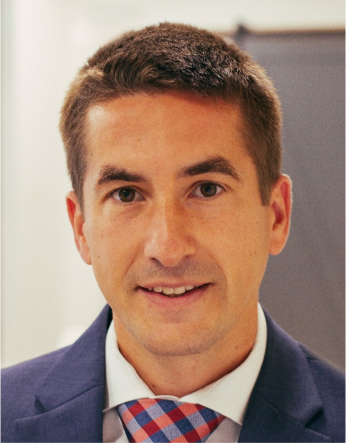
Wealth managers are trusted by their clients, but what about their clients’kids?
According to a report by Insider Intelligence, the U.S. wealth management industry was worth $29.1 trillion in 2020 and is anticipated to have over $73 trillion by 2025. But as time goes on, that wealth will fall into the hands of millennials, members of Generations X and Z, and even as yet unnamed age groups.
The inheritance of an estate can be life-changing for the recipient, but for those who manage the accounts and funds it is often a time when they find themselves working to keep business they have held on to for years, if not decades.

“Ideally we would try to be a family office where we have that multi-generational relationship with our clients,” said Marc Lennon, a Cheshire-based certified financial planner and managing partner with Egidio-Lennon Wealth Management. “I’m 38, but I think a lot of our generation will need some help because I’m not convinced, they’re saving enough for what they’ll need to have at 65 years old to retire. I think many of them will go on to be dependent upon inheriting some of these funds and it’s not a great financial plan. I also think a lot of the older generation will probably bail out some of the kids who either didn’t save enough or couldn’t save enough because of rising costs.”
Lennon also noted that the 2020 SECURE Act changed planning around how estates are passed on. Inheritors besides spouses are now required to draw down the entirety of any inherited IRAs within 10 years, all while paying taxes on each withdrawal.
“In the older days it could have been more like a pension for the younger generation, but now they need to think about how they will use it,” said Lennon. “Pay down debt or student loans? Downpayment on a mortgage? Reinvest it into a new retirement account?”
Lennon specializes in working with educators, who often enjoy pensions but have been quick to retire in the face of the Covid pandemic.
“We’re seeing more educators looking to retire earlier than I’ve ever seen in my career. Some are in the unique situation of being willing to work part-time or cut back on expenses if need be, just to get out of the profession which is challenging,” Lennon said.
Pensions are also increasingly uncommon , only 13.5% of Americans had pensions that qualify as cash balance plans in 2020 according to the US Census Bureau. And only 49.5% of millennials between the ages of 24 and 39 have any type of structured savings or pension plan at all, according to the same data.
Roger Williams, an adjunct professor at Sacred Heart University who teaches finance courses including one about private wealth management, noted that much of the math the industry relied upon may be changing under current conditions.

“One thing I jump at the chance to teach, because I think an awful lot of people just don’t get it,” Williams said, “is that without a pension fund like my parents or your grandparents had, and with social security being a little iffy, people need to really know about saving for retirement specifically. A pension fund can assume that the average person will die at 85, so they need to save up enough money for 20 years of retirement for everyone. However, if you do it yourself you can’t assume you’re going to die at 85. You have to assume you’re going to die at 100. And you need to save a lot of money for that.”
Williams added that one of the challenges for a private wealth manager “is you get hired by the parents who say they would like you to protect their children, protect them from divorces and irresponsible spending. So, the industry has the challenge of how you gain the trust of the children knowing that as they get older might say ‘Well you were fine for my mom and dad, but you were really their consultant.'”
Suddenly having younger clients with very different needs could prove challenging for some wealth managers, but Williams did note that as these younger generations grow older with fewer support systems and poor financial literacy there may be new opportunities for wealth managers.
“When I have the 21-year-olds in the classroom I say, ‘You will not have a pension fund most likely,'” he said. “You should be worried about social security. Basically, you are going to have to do this on your own, so if you’re thinking of private wealth management that field will grow. Just because more people do need that advice.”





















